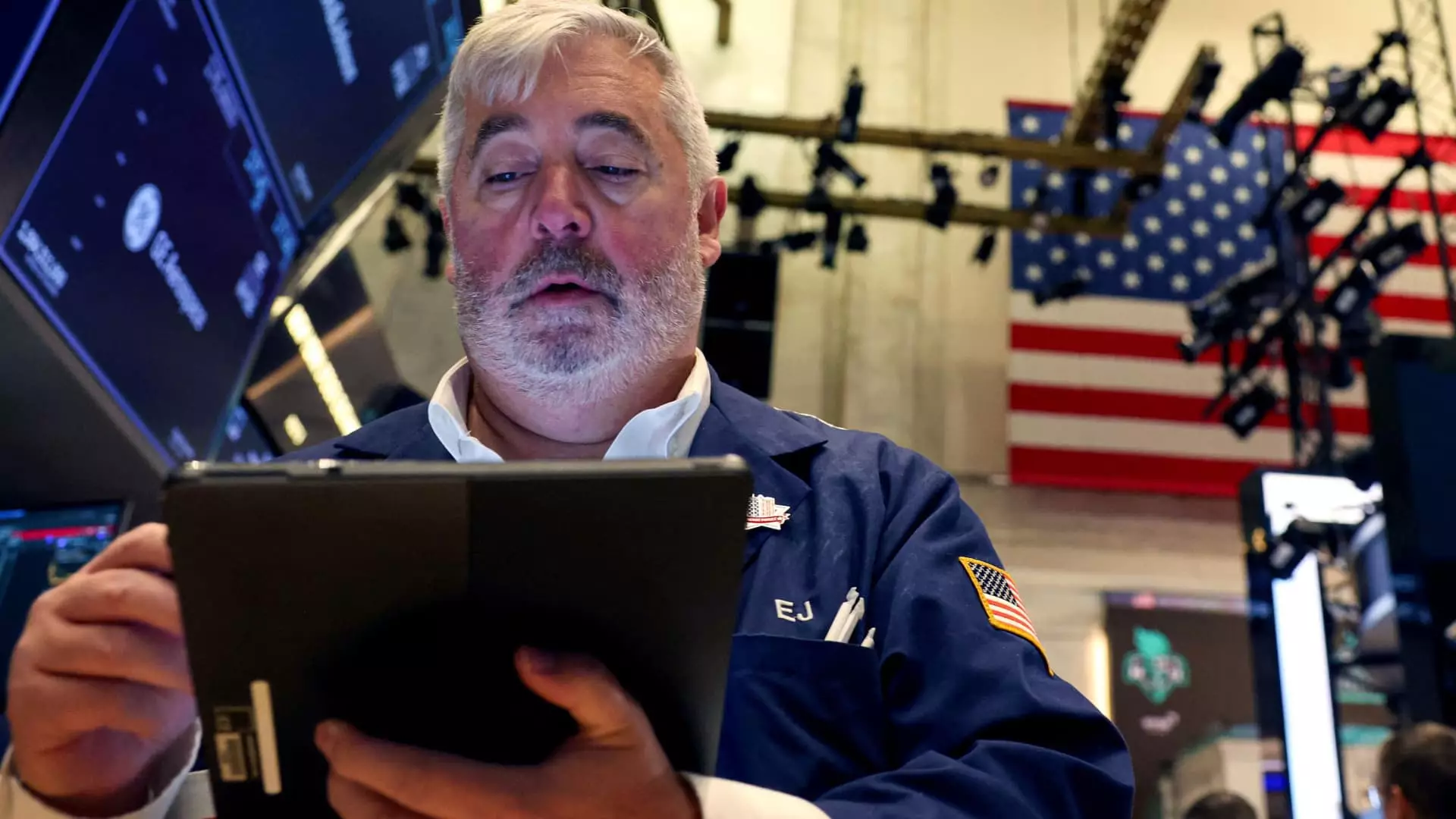As the United States gears up for a pivotal presidential election, financial analysts are keenly observing potential outcomes and their implications for stock market performance. In a recent evaluation, Goldman Sachs has outlined four key scenarios based on likely election results: a victory for former President Donald Trump, a win for Vice President Kamala Harris, or combinations of these outcomes leading to differing congressional control. Each scenario carries its own projected impacts on the S&P 500 index and various sectors of the economy, highlighting the significant role political climates play in shaping investment strategies.
The Energy of Election Uncertainty
With the stakes at an all-time high, market volatility is anticipated to surge as investors brace for any outcomes that could disrupt the status quo. Goldman Sachs has indicated a noteworthy expected move of approximately 1.91 percentage points for the S&P 500 in the days leading up to the election. Yet, amidst this uncertainty, the firm expresses a generally optimistic outlook, anticipating potential relief rallies across financial benchmarks once the election dust settles. Analysts suggest that many investors are poised to reinvest funds and make investment decisions once the election outcome is clear, indicating a readiness to engage with the market rather than retreat from it.
Goldman Sachs estimates that the scenario in which Trump wins and the Republicans take control of both houses of Congress carries a 25% likelihood. This outcome could lead to an immediate 3% rise in the S&P 500, driven primarily by investor confidence in deregulation and potential tax breaks for corporations. Financial institutions, particularly regional banks, are expected to flourish in this environment, capitalizing on favorable fiscal policies. However, while stock performance in this scenario looks promising, the broader implications of economic policies may tilt toward benefiting domestic-focused companies over international counterparts, showcasing a shift in market dynamics resulting from political outcomes.
Scenario 2: Divided Government After Trump’s Win
The possibility of Trump winning while a divided Congress governs, which Goldman Sachs estimates at a 30% chance, presents a more nuanced impact on stock performance, envisaging an S&P rise of about 1.5%. Investors might find solace in a lower 10-year Treasury yield, which could help offset concerns related to increased fiscal debt. However, without a major overhaul in tax policy, market analysts caution that potential stock market gains may prove fleeting. Here, the political climate could introduce an air of unpredictability, making it harder for investors to commit fully without reserved caution.
Scenario 3: Harris Sweeps with Democratic Control
This scenario—where Harris wins and the Democrats gain control of Congress—boasts only a 5% likelihood, yet it carries profound implications for the market. Goldman predicts an immediate 3% decline in the S&P 500 as investors grapple with the prospect of increased corporate taxes, which could escalate from 21% to 28%. The push for deregulation—a hallmark of the previous administration—would likely face setbacks, presenting a risk-negative environment for equities. Investors might pivot toward defensive stocks, anticipating a heavier tax burden that weighs on corporate profit margins.
The most probable scenario, with a 40% likelihood, features Harris winning while Congress remains divided. This outcome could see the S&P 500 dip by approximately 1.5%, yet analysts remain optimistic that such a dip could attract buyers seeking bargains. In this complex environment, while deregulation may be stymied, lower rates and a weaker dollar could buffer market reactions allowing for targeted investments in growth stocks, particularly those in renewable energy sectors. With the potential for increased volatility, this scenario emphasizes the need for strategic positioning within portfolios aimed at capitalizing on specific growth areas that may benefit regardless of broader regulatory climates.
As the nation inches closer to the election, the analysis provided by Goldman Sachs underscores the fluid nature of market sentiment and the unpredictability surrounding political processes. For investors, understanding these potential electoral outcomes becomes critical when devising strategies to safeguard their portfolios. Amid forecasts of heightened volatility and varying likelihoods of different scenarios, staying informed and prepared to pivot in response to market changes is more crucial than ever. Ultimately, the interplay between politics and economics emphasizes a defining moment that could shape investment paradigms for years to come.

